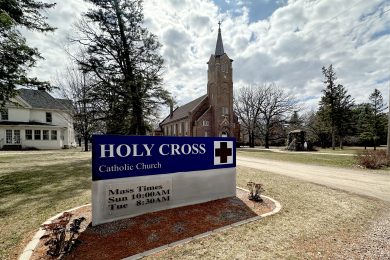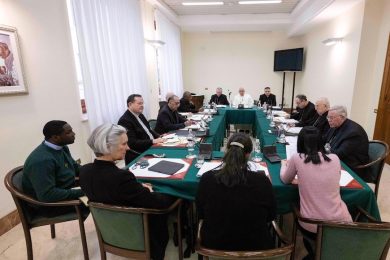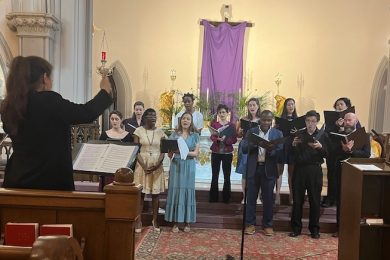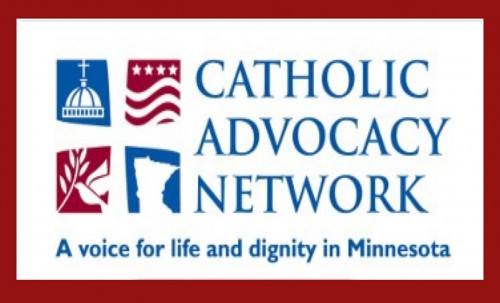Too many elected officials today are mired in a political environment of hyper-partisanship and ideological rigidity
Even one as accustomed to political victory as Otto von Bismarck said that “politics is the art of the possible, the attainable — the art of the next best.”
But too many elected officials today, mired in a political environment of hyper-partisanship and ideological rigidity, are unwilling and feel unable to compromise to find solutions if it means allowing an opponent’s policy to pass. Better, it seems, to do nothing than to allow the opposition to score even a single political point.
This zero-sum attitude — tailored to appease a small base of constituents, donors and activists — impedes the creation of policies that improve our communities. As a result, problems persist and frustration with public life mounts.
Minnesota no different

While partisan brinkmanship thoroughly characterizes national politics, it can also rear its head here in Minnesota.
For example, Republicans and Democrats failed to convene a special session last month to address a host of pressing issues facing the state. Talks stalled when legislators couldn’t agree on measures to target one of the most serious of these problems: the economic and educational disparities between some minority communities and whites.
These disparities are most evident among Minnesota’s African-American community. For instance, the 2014 median income level for black households ($27,000) was less than half of the overall state median ($61,500). An African-American in our state is also three times more likely to be in poverty than is the average Minnesotan.
The causes of such disparities are complex and often have their source in problems that public policy is ill-equipped to address, such as family fragmentation. But there is little disagreement among legislators that these disparities exist, are detrimental to our entire state and need to be addressed promptly.
As Catholics, our faith calls us to take inequality very seriously, and to work to find solutions that can lessen such gaps. In their 1986 pastoral letter “Economic Justice for All,” the U.S. Catholic bishops stated, “As Christians, we are called to respond to the needs of all our brothers and sisters, but those with the greatest needs require the greatest response.”
For our legislators, the difficulty in responding to this great need stems not from an unwillingness to acknowledge the problem, as is sometimes the case in politics, but from an inability to compromise on potential solutions.
A good start
While the Republican-controlled House and the DFL-controlled Senate could not agree on a special session, they did come together for several hearings. A willingness to listen and be open to ideas are all stepping stones toward finding a common solution.
 During the hearings, Democrats proposed a legislative package that included fast-track GED programs and workforce development efforts. Republicans were willing to accept the DFL proposal if it was joined to one of their own: giving low- and middle-income families (those earning less than $47,000 a year) the opportunity to receive a personal income tax credit for the tuition they paid at a non-public school of their choice.
During the hearings, Democrats proposed a legislative package that included fast-track GED programs and workforce development efforts. Republicans were willing to accept the DFL proposal if it was joined to one of their own: giving low- and middle-income families (those earning less than $47,000 a year) the opportunity to receive a personal income tax credit for the tuition they paid at a non-public school of their choice.
Both sets of policies, taken together, would have only begun to scratch the surface of the myriad factors that contribute to racial inequality in Minnesota. Still, a compromise package would have been an important symbolic step, demonstrating concern for the issue and the political will to make important concessions to address a major public challenge.
Taking the next step
That partisan politics continues to prevail over common sense solutions indicates a lack of vocational direction in our elected officials.
If legislators are searching for an inspiring vision of political life, they can look to Pope Francis. “Legislative activity is always based on care for the people,” the pope reminded the U.S. Congress in his September address. “To this you have been invited, called and convened by those who elected you.”
Our legislators missed an opportunity to serve the people they represent when they failed to convene a special session. Fortunately, they will have the chance to right that wrong in the upcoming legislative session. Let us pray they will live out their noble call and pursue the common good instead of the siren’s call of all-or-nothing politics.
Shawn Peterson is associate director for public policy for the Minnesota Catholic Conference.






















